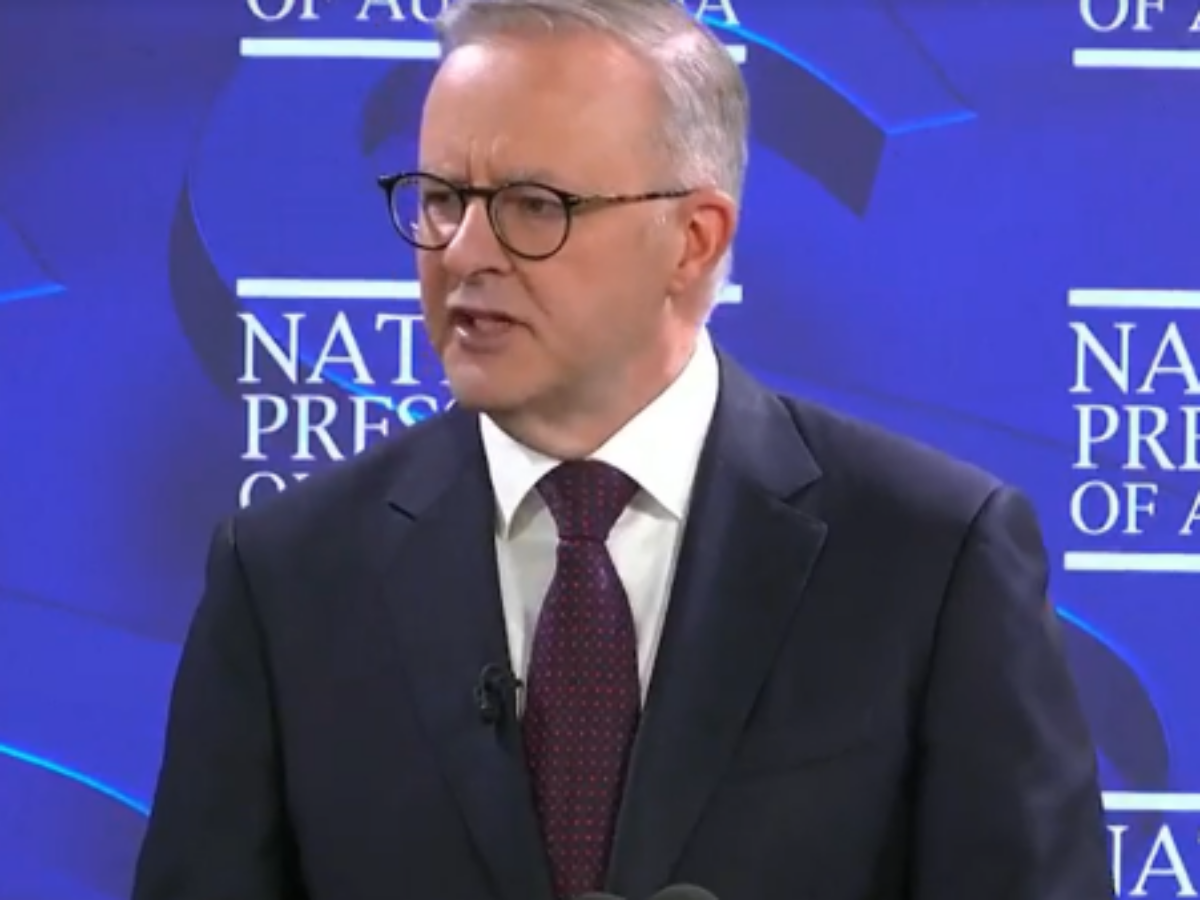Albanese offers policies, but they don’t add up to an industry policy

By Peter Roberts
The Prime Minister Anthony Albanese outlined at the National Press Club yesterday the government's policies for industry – essentially encompassing skills development, energy price reduction and stimulating green technologies, the National Reconstruction Fund and the Aukus pact.
He linked these together as part of as the ‘structural changes that I've outlined today to ensure that there is growth in revenue and in our economy in the future'.
More than that these individual policies were the parts of a single plan for recreating Australian industry. In summary:
- ‘Jobs and Skills Australia will identify the skills in demand for today and tomorrow'.
- ‘Australia can be a renewable energy superpower'…producing ‘low-emissions products like green steel and green aluminium and green ammonia .And exporting clean energy, green hydrogen, critical minerals and value-added products'…'We can create more of these jobs and grow our economy by diversifying our exports, moving up the global supply chain and revitalising local manufacturing'.
- The $15 billion NRF ‘represents one of the biggest-ever investments in Australian manufacturing capacity'…and ‘It’s about national security through economic sovereignty – our capacity to stand on our own two feet'.
- And Aukus would have advanced manufacturing spin-offs, and was ‘also about our industry policy, about our economy, about jobs here'.
Albanese said: “That's how the NRF is linked to Jobs and Skills Australia, is linked to fee-free TAFE, is linked to clean energy plans as well. It's a plan for the future growth of our economy.”
And again: “This is how it fits together: cleaner, cheaper energy driving advanced manufacturing and creating jobs – and skilling Australians for those jobs.”
And again: “We can be a leader in skills and technology and manufacturing as well. Put simply, as I said during the campaign: I want us to make things here again. And I want products Made in Australia to be recognised and sought after around the world. Recognised for their quality, their sustainability, their innovative design – and the skill of the workers who produce them.”
@AuManufacturing has welcomed all these policies – though we have questioned why tougher action was not taken sooner to tackle the profiteering of LNG exporters whose windfall profits have come at the cost of a lack of supply and price rises to domestic industry.
That said each of these policy either builds on the previous government, such as Labor's continuing commitment to Aukus and to key industries such as critical minerals, or is genuinely something that should be celebrated.
But let's not kid ourselves – the things the Prime Minister talked about yesterday do not add up to a comprehensive industry policy.
Missing at the most basic levels are the institutions and the structures that determine and co-ordinate the direction the economy is to take, that consult widely and transparently with experts and industry, that build momentum behind an agreed plan.
At the top, industry policies are driven by half a dozen ministers in very different portfolios.
Yes the ministers meet in Cabinet, but there is no mechanism for those ministers to meet together formally to co-ordinate their efforts.
So we have a Treasurer advised by a dysfunctional and outdated Productivity Commission, an industry minister pulling in somewhat different directions, an energy minister running his own game and an education minister doing likewise.
At the institutional level there is no independent, and that word is critical, central coordinating body either.
These are not new problems, and in fact the lack of coherent national industry policies are what has seen the states take over many of the functions once performed by Canberra.
So we have even more atomisation of policy among competing jurisdictions, all with a hydrogen policy, all with a battery metals policy, all variously giving grants and R&D assistance to a plethora of players.
Just saying the things Labor has done does not mean they are more than, admittedly good, even great things Labor has done.
That would take a national industry policy – and with Albanese, there are few signs of that surfacing yet.
Picture: Anthony Albanese
@aumanufacturing Sections
Analysis and Commentary Awards casino reviews Defence Gambling Manufacturing News Online Casino Podcast Technology Videos

